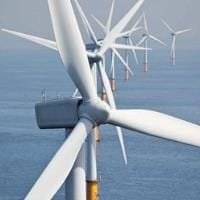(LUXEMBOURG) – A German law that gave support to businesses producing electricity from renewable energy sources did not involve state aid, the EU Court said Thursday in a ruling annulling the Commission decision.
Germany in a 2012 law on renewable energy (EEG 2012) introduced a scheme to support undertakings producing electricity from renewable energy sources and mine gas (herein known after as ‘EEG electricity’).
This law guaranteed producers a price higher than the market price. In order to finance that support measure, it imposed an ‘EEG surcharge’ on the suppliers to the final customers, which in practice was passed on to the final customers. However, certain undertakings, such as electricity-intensive undertakings in the manufacturing sector (‘EIUs’), were eligible for a cap on that (passed on) surcharge in order to maintain their international competitiveness. The EEG surcharge was payable to the interregional operators of high and very-high-voltage transmission systems (TSOs), which were obliged to sell the EEG electricity.
By its decision of 25 November 2014, the Commission found that the EEG 2012 involved State aid, while approving it to a large extent.
According to the Commission, although the support for undertakings producing EEG electricity constitutes State aid, it is however compatible with EU law. It also classified the reduction in the EEG surcharge for electricity-intensive undertakings as State aid. Since it took the view that those reductions were for the most part compatible with EU law, it ordered recovery in respect of a limited part of the reductions only.
Germany brought an action against that decision before the General Court which the General Court dismissed by its judgment of 10 May 2016.
Germany then brought an appeal against that judgment before the Court of Justice.
In today’s judgment, the Court of Justice upholds the appeal, sets aside the judgment of the General Court and annuls the Commission decision. According to the Court of Justice, the General Court was wrong to find that the funds generated by the EEG surcharge constituted State resources.
It follows that a factor required in order to classify as ‘aid’ advantages resulting from the mechanisms established by the EEG 2012 is lacking.
On the one hand, the EEG surcharge cannot be assimilated to a levy since the EEG 2012 does not require suppliers to final customers to pass on the amounts paid in respect of the EEG surcharge to those customers. The fact that ‘in practice’ the financial burden resulting from the EEG surcharge was passed on to the final customers is not sufficient in that regard.
On the other hand, the General Court failed to establish that the State held a power of disposal over the funds generated by the EEG surcharge or even that it exercised public control over the TSOs responsible for managing those funds.
The Court of Justice finds in particular that the fact that the funds from the EEG surcharge are allocated exclusively to the financing of the support and compensation schemes, by virtue of the provisions of the EEG 2012, tends rather to show that the State was specifically not entitled to dispose of those funds, that it is say to decide on a different allocation. Moreover, while the factors accepted by the General Court permit the conclusion that the public authorities monitor the proper implementation of the EEG 2012, they cannot, by contrast, permit the conclusion that there is public control over the funds generated by the EEG surcharge.
For the same reasons, the Court of Justice holds that the Commission failed to establish that the advantages provided for by the EEG 2012 involved State resources and therefore constituted State aid.
The Court of Justice therefore not only sets aside the judgment of the General Court but also annuls the Commission decision








